Femia > Health Library > Getting Pregnant > Trying to conceive > 9 DPO: What to expect, and how to tell if you’re pregnant
9 DPO: What to expect, and how to tell if you’re pregnant
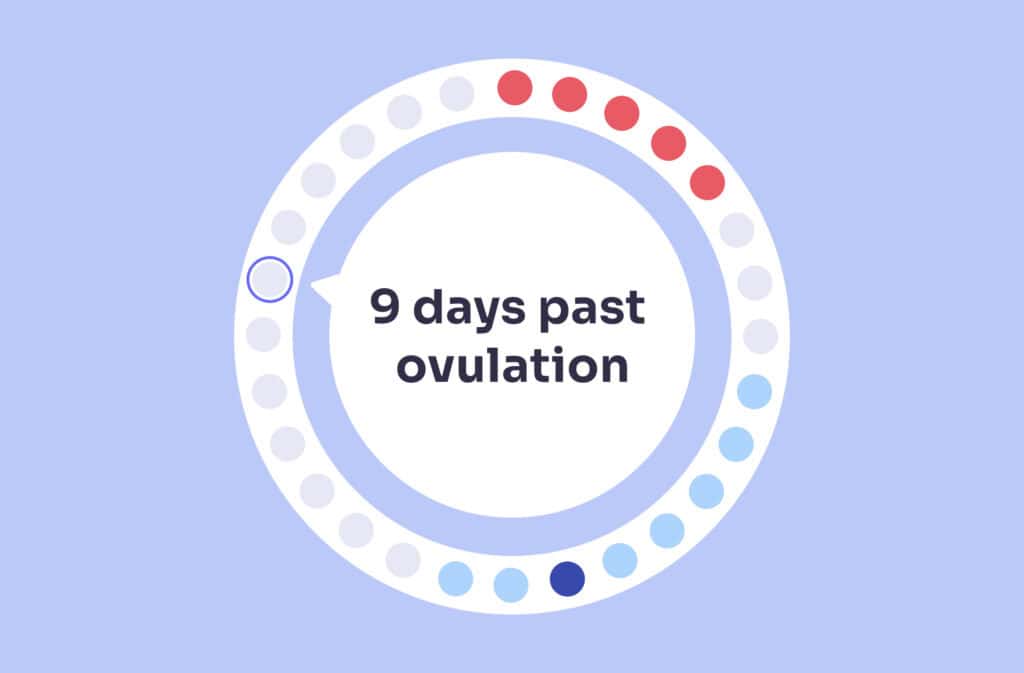
- Updated Feb 25, 2025
- Published
CRAFTED BY HUMAN
Crafted by human At Femia, we provide accurate and up-to-date information at every stage of your journey, from trying to conceive, pregnancy and postnatal support. All content is created by a real person based on in-depth research and own professional experience. Femia ensures that you will receive expert advice, strict accuracy and a personalized approach from our authors/medical experts. Learn more about our editorial policy.
FACT CHECKED
Fact checked At Femia Health, we maintain the highest standards of editorial excellence in delivering content focused on helping you conceive, guiding you through pregnancy, and supporting you postpartum. Explore our content review principles to learn how we ensure the accuracy and quality of our health and lifestyle tips for every stage of your journey.
At 9 DPO (9 days past ovulation):
- Implantation may have occurred or be in progress for some women.
- Hormone levels continue to rise, with progesterone peaking and possible early hCG production.
- Early pregnancy symptoms may become more noticeable, but many women still won’t feel different. 9 DPO symptoms can be similar to PMS, making it tricky to know if you’re pregnant or not.
- Some pregnancy tests might detect pregnancy, but it’s still early for most.
Welcome to 9 DPO! You’re now in the thick of the two-week wait, and things are getting exciting. Whether you’re hoping for a positive pregnancy test or just curious about your body’s changes, let’s dive into what’s happening and what you might be feeling.
➡️ Read other Femia guides in this series:
- 1 DPO: What to expect, and how to tell if you’re pregnant
- 2 DPO: What to expect, and how to tell if you’re pregnant
- 3 DPO: What to expect, and how to tell if you’re pregnant
- 4 DPO: What to expect, and how to tell if you’re pregnant
- 5 DPO: What to expect, and how to tell if you’re pregnant
- 6 DPO: What to expect, and how to tell if you’re pregnant
- 7 DPO: What to expect, and how to tell if you’re pregnant
- 8 DPO: What to expect, and how to tell if you’re pregnant
- 10 DPO: What to expect, and how to tell if you’re pregnant
- 11 DPO: What to expect, and how to tell if you’re pregnant
- 12 DPO: What to expect, and how to tell if you’re pregnant
- 13 DPO: What to expect, and how to tell if you’re pregnant
- 14 DPO: What to expect, and how to tell if you’re pregnant
- 15 DPO: What to expect, and how to tell if you’re pregnant
- 16 DPO: What to expect, and how to tell if you’re pregnant
What does 9 DPO mean?
9 DPO stands for “9 days past ovulation.” You’re well into the second half of your menstrual cycle, known as the luteal phase. At this point, your body is fully geared up for the possibility of pregnancy, even if you’re not quite sure if it’s happened yet.
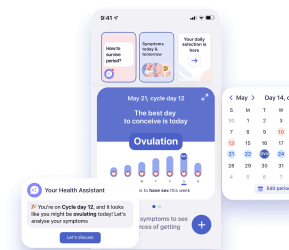
What's happening in your body at 9 DPO?
At 9 DPO, your body is a hive of activity. Here’s what might be going on:
1. Potential implantation
If fertilization occurred, the embryo might have already nestled into your uterine lining or be in the process of doing so. Implantation typically happens between 6-12 days after ovulation, so 9 DPO is right in that sweet spot.
2. Hormonal rollercoaster
Your progesterone levels are likely at their peak, and if you’re pregnant, your body might be starting to produce small amounts of hCG (human chorionic gonadotropin) – the hormone that pregnancy tests detect.
3. Uterine changes
Your uterine lining is thick and cozy, ready to support a potential pregnancy if implantation has occurred.
👉Find out more: Ultimate pre-pregnancy checklist: Essential steps to take before having a baby
9 DPO symptoms: What might you be feeling?
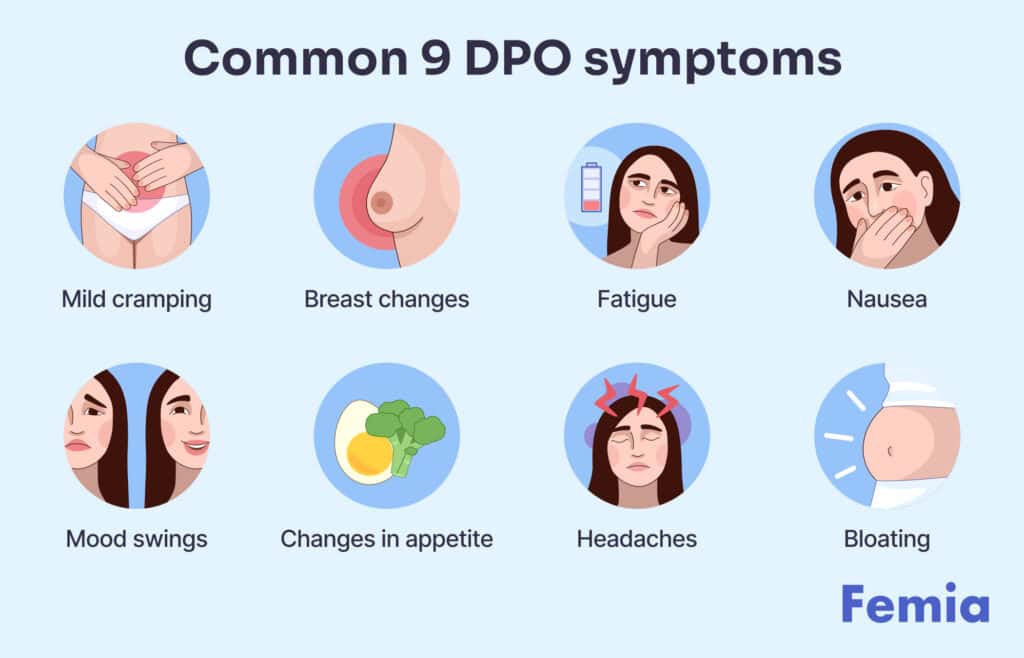
At 9 DPO, you might start noticing some early signs of pregnancy. But here’s the tricky part – many of these can also be PMS symptoms. Let’s break it down:
- Mild cramping: Some women experience 9 DPO cramping. This could be related to implantation or just your uterus responding to hormonal changes.
- Breast changes: Your breasts might feel tender, swollen, or even a bit tingly.
- Fatigue: Feeling more tired than usual? Your body is working overtime, whether you’re pregnant or not.
- Nausea: Some women start feeling queasy around this time, though full-blown morning sickness usually comes later.
- Mood swings: Feeling a bit more emotional than usual? Blame it on the hormones!
- Changes in appetite: You might notice food cravings or aversions.
- Headaches: Hormonal shifts can sometimes trigger mild headaches.
- Bloating: You might feel a bit puffy or bloated in your abdomen.
Remember, having these symptoms doesn’t guarantee pregnancy, and not having them doesn’t rule it out. Our bodies love to keep us guessing!
9 DPO discharge: What to look for
Curious about what’s going on down there? At 9 DPO, your discharge might be giving you clues. Here’s what you might see:
9 DPO discharge if pregnant
- An increase in creamy, white discharge;
- Sticky or tacky cervical mucus;
- No significant change (for some women).
9 DPO cervical mucus if not pregnant
- A decrease in cervical mucus compared to your fertile window;
- Thicker, stickier mucus;
- Dry or scant cervical mucus.
Keep in mind, though, that discharge can vary a lot from woman to woman and even from cycle to cycle. It’s not a reliable way to confirm or rule out pregnancy on its own.
9 DPO PMS or pregnant?
This is the million-dollar question, isn’t it? At 9 DPO, it can be really tough to tell if what you’re feeling is early pregnancy or just good old PMS. Let’s compare:
| Symptom | 9 DPO: pregnant | 9 DPO: PMS |
|---|---|---|
| Cramping | Often milder, may be intermittent | Can be more intense, similar to period cramps |
| Breast changes | Tenderness, possible darkening of areolas | Tenderness, usually improves after period starts |
| Mood changes | Can be more pronounced and last longer | Typically improves once period starts |
| Fatigue | May be more intense and persistent | Usually improves after period starts |
| Nausea | Possible, may increase over time | Uncommon, but can occur |
| Food cravings/aversions | May be present and intense | Can also occur, but usually less intense |
Can I take a 9 DPO pregnancy test?
We get it – the suspense is killing you. But is 9 DPO too early to test? Well, it’s still on the early side. Here’s why:
- Implantation timing: While implantation might have happened by now, it could also still be in progress.
- hCG levels: Even if implantation has occurred, it takes time for hCG levels to rise enough to be detected.
- Test sensitivity: Most home pregnancy tests are designed to detect pregnancy around the time of your missed period.
That said, some women do get a 9 DPO positive pregnancy test. If you decide to test, use a first-morning urine sample and a sensitive early-detection test. Just remember, a negative result doesn’t necessarily mean you’re not pregnant—it could just be too early.
👉Find out more: Evaporation line vs. faint positive: How to tell the difference on your pregnancy test
9 DPO symptoms ending in BFP (Big Fat Positive)
While every pregnancy is unique, some women who get their BFP report experiencing these symptoms at 9 DPO:
- Unusual fatigue;
- Mild cramping or twinges in the lower abdomen;
- Breast tenderness or changes;
- Increased sense of smell;
- Slight nausea or queasiness;
- Mood swings or emotional sensitivity;
- Food cravings or aversions;
- Frequent urination.
Remember, though, that many women have no symptoms at all at 9 DPO and still go on to have healthy pregnancies.

Questions from the Femia community
I had a temperature dip at 9 DPO. Does this mean I'm out this cycle?
Not necessarily! Some women experience a slight temperature dip around implantation time. While it's not a guaranteed sign of pregnancy, it doesn't rule it out either. Keep tracking your temperature and see what happens in the next few days.
My breasts aren't sore at 9 DPO. Can I still be pregnant?
Absolutely! Not all women experience breast tenderness in early pregnancy. Some women don't have any breast changes until later, and others might not notice much change at all. The absence of one symptom doesn't rule out pregnancy.
I'm having a lot of creamy discharge at 9 DPO. Is this a good sign?
Increased creamy discharge can be a sign of early pregnancy for some women, but it can also just be a normal part of your cycle. While it's exciting to notice these changes, try not to read too much into them. The only way to know for sure is with a positive pregnancy test.
The bottom line
Remember, every woman’s body is different, and every pregnancy is unique. What one person experiences might be totally different from what you’re going through. The best thing you can do is take care of yourself, stay patient, and test when the time is right. Hang in there – you’ve got this!
➡️ Read other Femia guides in this series:
- 1 DPO: What to expect, and how to tell if you’re pregnant
- 2 DPO: What to expect, and how to tell if you’re pregnant
- 3 DPO: What to expect, and how to tell if you’re pregnant
- 4 DPO: What to expect, and how to tell if you’re pregnant
- 5 DPO: What to expect, and how to tell if you’re pregnant
- 6 DPO: What to expect, and how to tell if you’re pregnant
- 7 DPO: What to expect, and how to tell if you’re pregnant
- 8 DPO: What to expect, and how to tell if you’re pregnant
- 10 DPO: What to expect, and how to tell if you’re pregnant
- 11 DPO: What to expect, and how to tell if you’re pregnant
- 12 DPO: What to expect, and how to tell if you’re pregnant
- 13 DPO: What to expect, and how to tell if you’re pregnant
- 14 DPO: What to expect, and how to tell if you’re pregnant
- 15 DPO: What to expect, and how to tell if you’re pregnant
- 16 DPO: What to expect, and how to tell if you’re pregnant
References
- American College of Obstetricians and Gynecologists (ACOG). “Early Pregnancy Loss: Miscarriage and Molar Pregnancy.” ACOG Practice Bulletin, no. 200, 2018, pp. 1-10. The American College of Obstetricians and Gynecologists. https://www.acog.org/clinical/clinical-guidance/practice-bulletin/articles/2018/11/early-pregnancy-loss.
- “Luteal Phase, an overview.” ScienceSirect. https://www.sciencedirect.com/topics/medicine-and-dentistry/luteal-phase.
- Wilcox, Allen J., et al. “Time of Implantation of the Conceptus and Loss of Pregnancy.” New England Journal of Medicine, vol. 340, no. 23, 1999, pp. 1796-1799. National Library of Medicine.
- Norwitz, Errol R., et al. “Implantation and the Survival of Early Pregnancy.” New England Journal of Medicine, vol. 345, no. 19, 2001, pp. 1400-1408. National Library of Medicine, https://pubmed.ncbi.nlm.nih.gov/11794174/.
- American College of Obstetricians and Gynecologists. “Fertility Awareness-Based Methods of Family Planning.” ACOG Practice Bulletin No. 205, 2019. https://www.acog.org/womens-health/faqs/fertility-awareness-based-methods-of-family-planning.
- National Institutes of Health. “What are some common signs of pregnancy?” National Institute of Child Health and Human Development, 2017. https://www.nichd.nih.gov/health/topics/pregnancy/conditioninfo/signs.
- Mayo Clinic Staff. “Home pregnancy tests: Can you trust the results?” Mayo Clinic, 2022. https://www.mayoclinic.org/healthy-lifestyle/getting-pregnant/in-depth/home-pregnancy-tests/art-20047940.
- U.S. Food and Drug Administration. “Pregnancy.” FDA, 2019. https://www.fda.gov/medical-devices/home-use-tests/pregnancy.
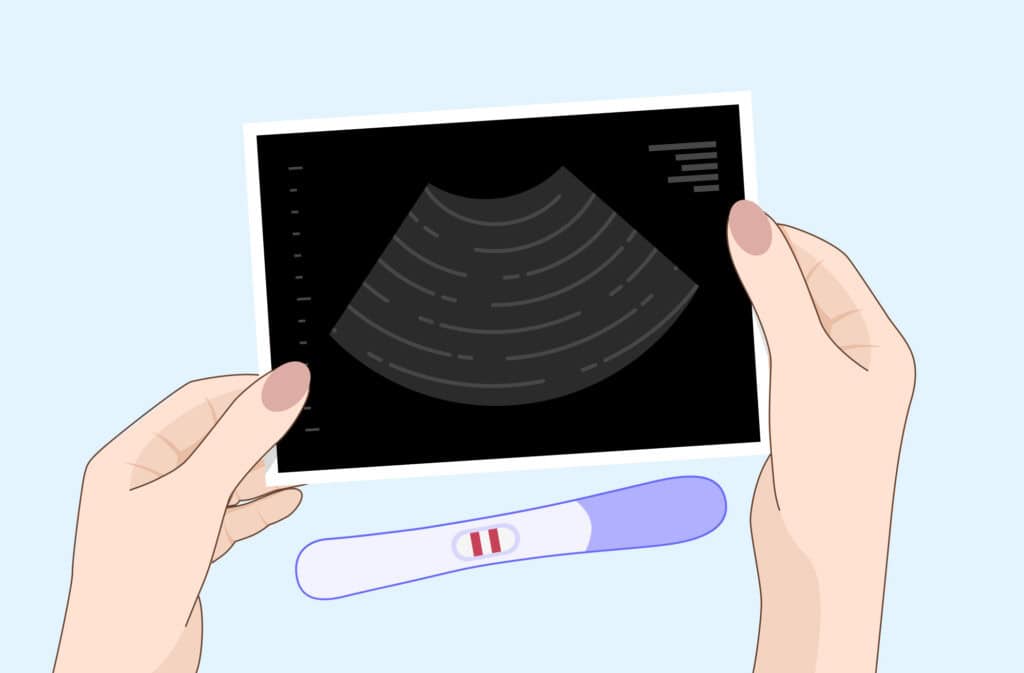
Discover why you might have a positive pregnancy test but no baby on ultrasound. Learn about 5 possible causes, including high hCG levels without pregnancy. Expert insights from Femia.

Bleeding during sex is a common complaint and is generally nothing to worry about. However, some cases require medical attention to treat the underlying cause.
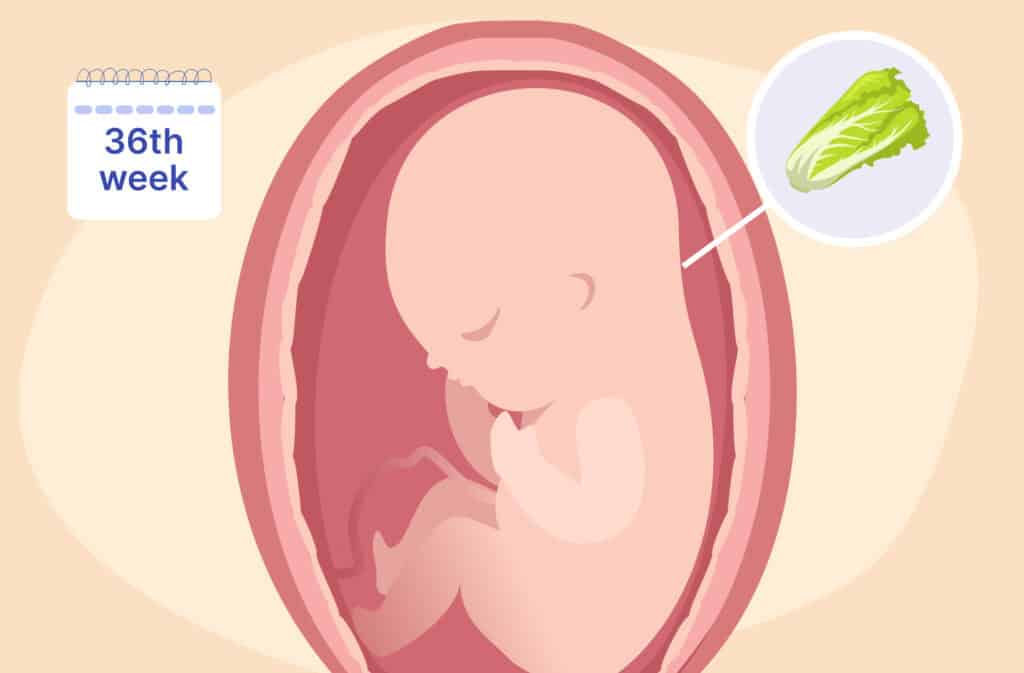
At 36 weeks pregnant, your baby is nearly early-term and preparing for birth. Learn about symptoms, delivery readiness, and labor tips.

